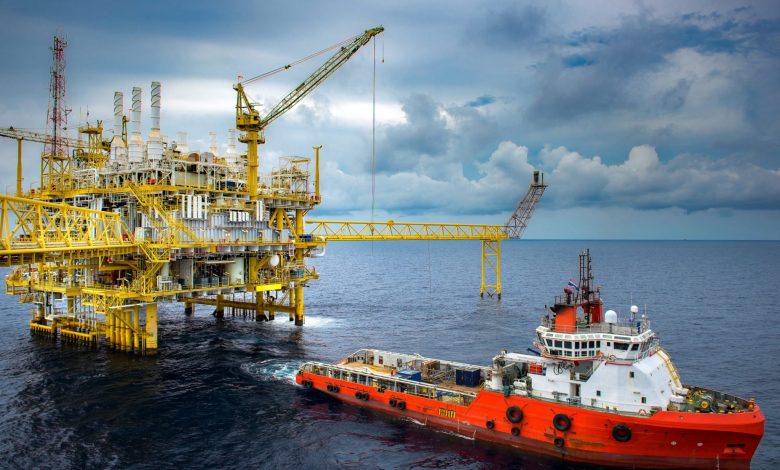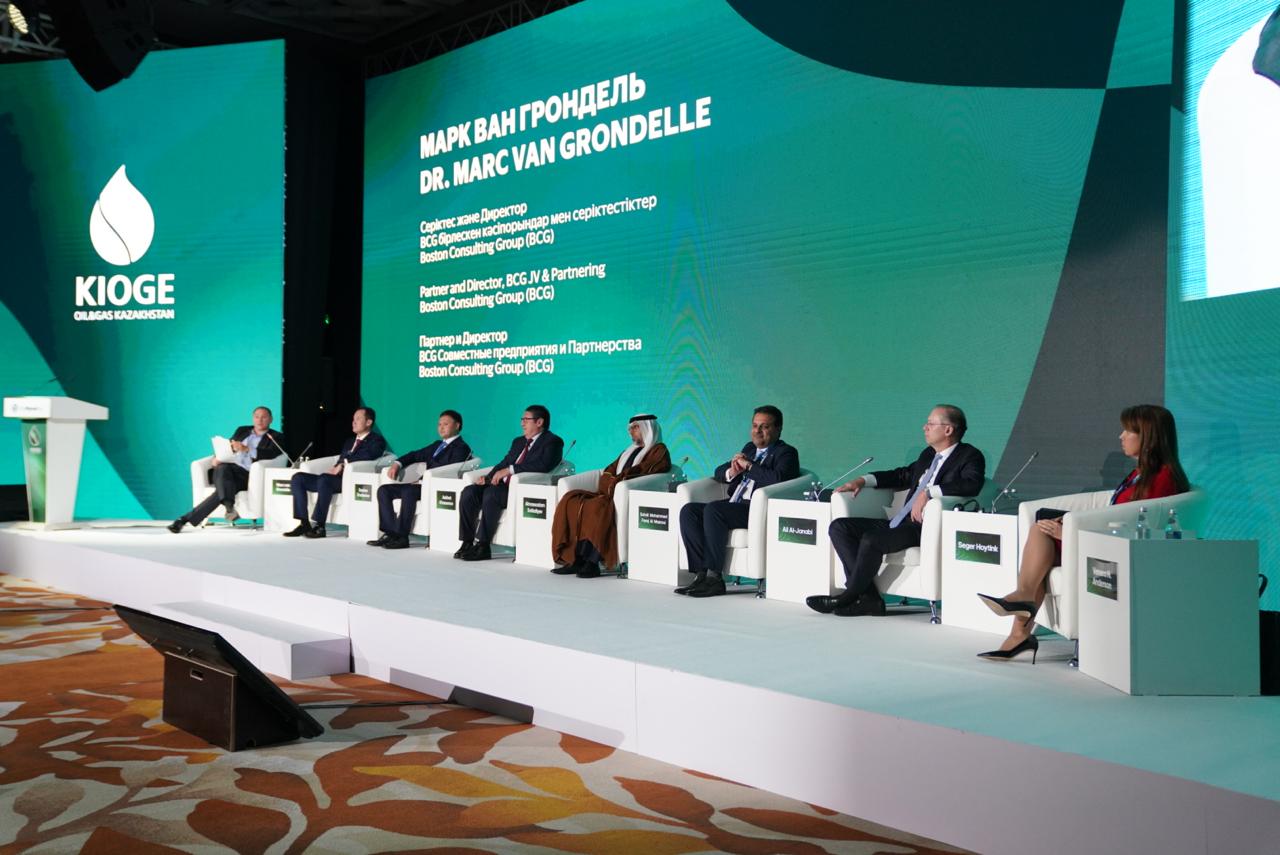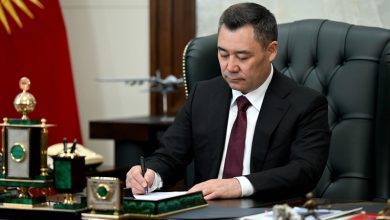Kazakhstan to Expand Oil Exports with New Routes and Investments

ASTANA – Kazakhstan plans to increase oil production to 100 million tons per year, or around 730 million barrels by 2030, said Kazakh Minister of Energy Almassadam Satkaliyev at the 29th Kazakhstan International Oil & Gas Exhibition and Conference (KIOGE) on Sept. 25 in Almaty, reported the ministry’s press service.

The 29th Kazakhstan International Oil & Gas Exhibition and Conference (KIOGE) is taking place in Almaty on Sept. 25-27. Photo credit: Energy Ministry
Satkaliyev noted that Kazakhstan is one of the world’s largest producers and exporters of oil and gas. In 2023, oil production in Kazakhstan amounted to 90 million tons or 655 million barrels, and oil exports last year amounted to 70.5 million tons or 517 million barrels.
According to Satkaliyev, Kazakhstan has been supplying oil via additional routes, including Azerbaijan and Germany, since 2023.
In 2022, Kazakhstan’s KazMunayGas (KMG) and Azerbaijan’s SOCAR signed a five-year agreement to transport 1.5 million tons of oil through the Baku (Azerbaijan)—Tbilisi (Georgia)—Ceyhan (Turkey) (BTC) pipeline.
“An agreement was reached to transport 1.5 million tons of Kazakh oil annually via the BTC pipeline, with actual pumping reaching about 1 million tons. As a result of negotiations, Azerbaijan’s side expressed readiness to increase the volume of Kazakh oil up to 2.2 million tons per year. According to actual data for 8 months of 2024, 0.9 million tons were transported along this route,” said Satkaliyev.
In February 2023, Kazakhstan commenced oil deliveries to Rosneft Deutschland GmbH for the Schwedt refinery. An agreement between Kazakhstan, Germany, and Russia allowed up to 1.2 million tons annually via the Atyrau-Samara pipeline. Approximately one million tons were delivered in 2023. In March 2024, the supply contract was extended for another year at 1.2 million tons, with ongoing efforts to secure additional volumes, said Satkaliyev.
Investment in exploration
The Improved Model Contract was designed to attract investment in exploration by offering a range of regulatory and fiscal incentives for new offshore, complex onshore, and gas fields.
“To date, we have already signed six contracts totaling $9 billion in investments. We invite all interested parties to implement joint projects in this area,” said Satkaliyev.
Another key priority for Kazakhstan in the short and long term is the deep processing of hydrocarbons, particularly in advancing the petrochemical industry. In 2022, one of the world’s largest polypropylene production plants with an annual capacity of 500,000 tons was launched. Additionally, the construction of the first polyethylene plant with a capacity of 1.25 million tons and a total investment of about $7.4 billion started earlier this month.
“In general, state support for potential projects in this area provides for all necessary infrastructure and tax preferences, including 0% on land, property, value-added and customs taxes,” the minister said.
UAE’s investment in Kazakhstan’s green energy
As part of the event, Satkaliyev met with Suhail Mohamed Al Mazrouei, the Minister of Energy of the United Arab Emirates (UAE).
Al Mazrouei said the UAE is actively cooperating with 48 countries, including Kazakhstan, in the development of renewable energy.
“We intend to invest more than $20 billion in 40 countries to develop this area. And we are happy to be working with Kazakhstan, at least on generating 1 gigawatt of green energy,” he said, referring to a one-gigawatt wind power station in the construction process by Masdar Renewable Energy Company in Kazakhstan.





